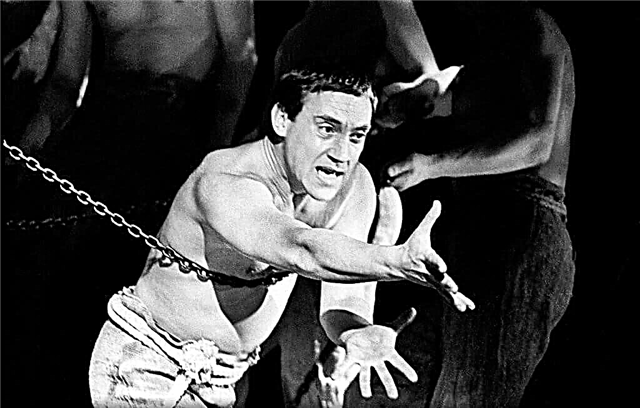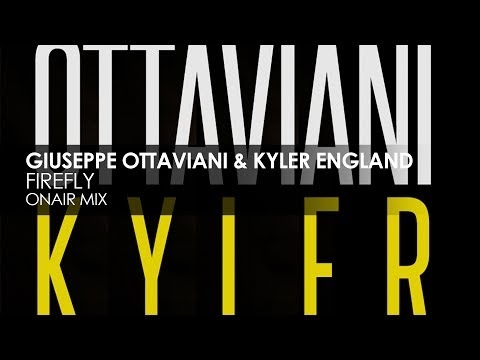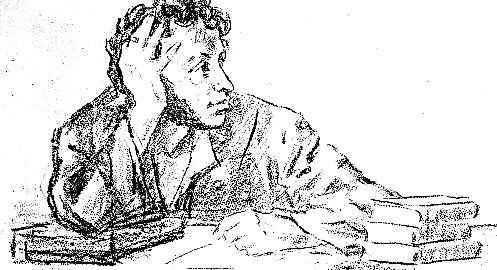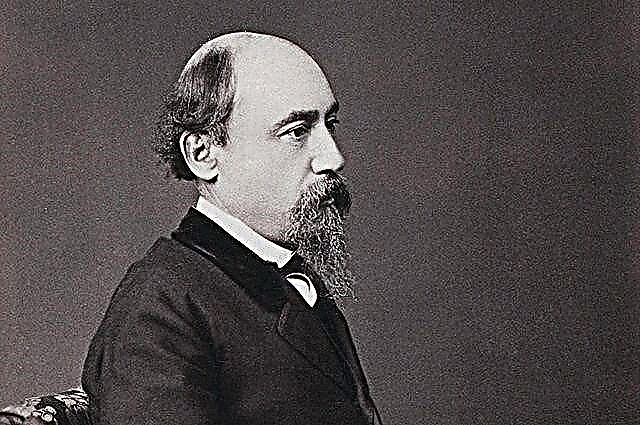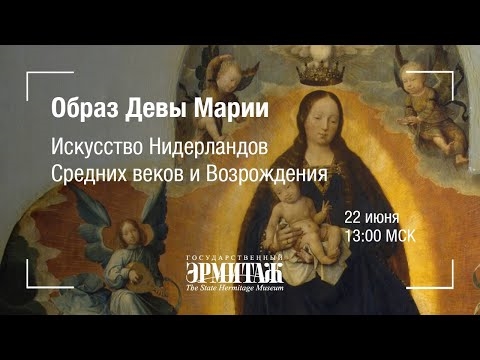First satire (“On blasphemy doctrine. To his own mind”) opens with famous verses: “Mind is immature, the fruit of a short science! / Rest, do not force my hands to the pen ... "
The satirist lists the arguments of those who consider science unnecessary. Hanja Criton sees in them the cause of godlessness: “The schisms and heresies of science are children; “He lies more, who needs to understand more.” Before, people dutifully went to church service and listened to it, not understanding. Now, to the temptation of the Church, they began to read the Bible themselves, forgot about fasting, don’t drink kvass, forgot how to bow and light candles, believe that the monasteries did not stick to the estates. Skopid Silva says that the doctrine leads to hunger: not learning Latin, they collected more bread. The nobleman should not speak correctly and comprehend the reason for the world: he will not know from this how much the clerk steals and how to add the number of barrels from the winery. “It makes sense to divide the earth in a quarter without Euclid, / How many kopecks are in a ruble, we can count without algebra.” “Ruddy, burping three times, Luka sings along”: science prevents people from having fun and destroys the company. Wine is a divine gift; a cheerful person, leaving a glass, will not take up a book. Shchegol Medor buys that a lot of paper comes out on books, and he has nothing to wrap curled curls on; Virgil and Cicero of two money do not stand before the glorious tailor and shoemaker. “This is part of the speeches that ring my ears for every day.”
Yes, and it is clear that without science it is easier to succeed. To become a bishop, cover the head with a rather big hood, and use a beard for your belly, and, having swelled in a carriage, hypocritically bless everyone. It is enough for the judge to raise a peer with knots and scold those who come empty-handed. He does not need to know the laws: it’s up to the clerks to climb the paper mountains.
Every ignorant imagines himself worthy of the highest rank and honors. So the mind does not need to look for these honors, but rather, sitting in its corner, in itself, keep knowledge about the benefits of science, and not explain it to others.
Satire the second (“To the envy and pride of the malevolent nobles”), a dialogue between Filaret (“Loving virtue”) and Eugene (“Noble”, that is, noble). Filaret meets Eugene in great sadness and guesses the reason: "The ribbon is given to Tryphon, Tullius is villages / Awarded - you with ancient despised names." Eugene confirms. He is disappointed that yesterday’s cakes and shoemakers jumped to a high degree, and with his nobility he achieved nothing. “My ancestors were noble in the kingdom of Olga” and since then they ruled both in the war and in the courts, “But the priest has the upper hand - he was gone, / the State has lost his right shoulder”. It's a shame, having such ancestors, everywhere to see yourself last.
Filaret answers in detail and frankly. Nobleness is an important thing, but it must be obtained or confirmed by one's own merits. And the letter, "mold and worms gnawed away", does not give any dignity to a person: "It’s not enough for you to call at least the king’s son, / If in morals with the vile you do not equate the kindergarten"; in the noble the same blood flows as in the serfs. Eugene has no merit before the fatherland, but he himself admitted that his ancestors received their ranks and awards according to their deserts. “The rooster sang, the dawn rose, the rays lit up / The sun was on top of the mountains - then the army was withdrawn / Your ancestors entered the field, and you are under brocade / Gentlely deepened in fluff by body and soul, / Terribly sniffling, until two fractions run by the day ..."
The dandy day is described below. In the morning he baskes for a long time, then drinks tea or coffee, combes himself whimsically, puts on tight shoes (“Sweat from a servant falls, / Two calluses and you become beautiful”), puts on an outfit at the price of an entire village and chosen with art that is more difficult science of Roman law. Then he indulges in gluttony, surrounded by vile friends who, of course, will leave him as soon as he squanders. Eugene is constantly approaching the hour of his ruin, indulging in motivation and a card game: he has already lost more than one village.
And to occupy important positions, you need a lot of knowledge. Eugene does not know anything from the complex military science, he is afraid of the sea and is unable to rule the ship. A judge can be someone who “Mudra doesn’t get away with Petrov’s laws, / With whom we suddenly became a new people”, - and also kindhearted - Eugene, apart from his ignorance, is insensitive and cruel: he laughs in poverty, he beats a slave to blood, that he waved his hand instead of the right left, according to his reckoning he considers legal all ways to replenish an empty wallet. He cannot even deserve court ranks. Eugene is lazy, and the court ranks are obtained by troubles and patience. The courtier Cleit is over there: he spends all days in the front lines of others, carefully measures his words so as not to offend anyone, and at the same time he goes directly to his goal. It’s not a sin to learn such qualities in order to use them for good deeds.
In a word, Evgeny’s evil makes him unfit for anything: “Correct yourself and then wait, my friend, a reward; / Since then, do not consider it forgotten to be forgotten. ” And that Tullius and Tryphon do not have noble ancestors - this does not mean anything. As the ancestors of Eugene began a noble family under Olga, so Tryphon and Tullius began their own now. Adam did not give birth to nobles, and Noah in the ark saved all the peasants who were equal to himself. "From them we all went all the way, some earlier, / Leaving the pipe, sokha, the other later."
Satire Seventh (“On education. To Prince Nikita Yuryevich Trubetskoy”) there is more an epistle than a satire: a detailed exposition of thoughts about the subject of reasoning. The poet begins by exposing the general opinion that the mind is given exclusively with age and that therefore the young man cannot give sound advice. Why such a prejudice? Many say that a person is naturally inclined to go into deception, but in fact, more depends on upbringing: any cornfield will dry up if not watered; any one will produce fruit with skillful care. This was known by Peter the Great, who himself sought to look for good examples in other countries and opened schools for subjects. Proper upbringing is the path to excellence: “The main thing in upbringing is the matter, / So that the heart, passions can be expelled, the baby is ripe / To affirm in good morals, so that it is useful / Your son is kind to the country, amiable between people / And always desirable, - to to that all sciences / Ends and arts should all give hands. ”
You can be a great scientist or warrior - but no one will remember the evil and unfriendly person. Only virtue can give a person a calm conscience and a fearless expectation of death. A simple mind with a clear conscience is better than a sharp mind with malice.
You do not have to repeat strict rules to the children all the time and scold them, all the more so in public - this will only beat off the love of virtue. It is best to act as an example. Having noticed an evil inclination in his son, he must be pointed out to someone who suffers from her: the stingy man, withered over his gold, mota in prison, a sick voluptuous man. It is necessary to carefully choose the child's servants and the whole environment: it greatly affects education. Often a son loses virtue in the arms of a slave and learns from the servants to lie. The parents are an example worse than all. There is no sense in reading the child's instructions if he constantly sees evil in his own father. Whoever cannot avoid evil himself, let him hide it from his son: after all, no one will show the guest a mess in his house, and the children are closer than the guest. To many, such instructions from a young man seem nonsense, the poet concludes, so they may not read these verses, which were written for one fun ...



